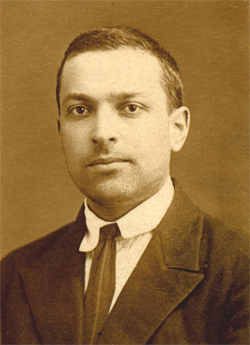Definition
The social cognition learning model asserts that culture is the prime determinant of individual development. Humans are the only species to have created culture, and every human child develops in the context of a culture. Therefore, a child’s learning development is affected in ways large and small by the culture–including the culture of family environment–in which he or she is enmeshed.
Discussion
1. Culture makes two sorts of contributions to a child’s intellectual development. First, through culture children acquire much of the content of their thinking, that is, their knowledge. Second, the surrounding culture provides a child with the processes or means of their thinking, what Vygotskians call the tools of intellectual adaptation. In short, according to the social cognition learning model, culture teaches children both what to think and how to think.
2. Cognitive development results from a dialectical process whereby a child learns through problem-solving experiences shared with someone else, usually a parent or teacher but sometimes a sibling or peer.
3. Initially, the person interacting with child assumes most of the responsibility for guiding the problem solving, but gradually this responsibility transfers to the child.
4. Language is a primary form of interaction through which adults transmit to the child the rich body of knowledge that exists in the culture.
5. As learning progresses, the child’s own language comes to serve as her primary tool of intellectual adaptation. Eventually, children can use internal language to direct their own behavior.
6. Internalization refers to the process of learning–and thereby internalizing–a rich body of knowledge and tools of thought that first exist outside the child. This happens primarily through language.
7. A difference exists between what child can do on her own and what the child can do with help. Vygotskians call this difference the zone of proximal development.
8. Since much of what a child learns comes form the culture around her and much of the child’s problem solving is mediated through an adult’s help, it is wrong to focus on a child in isolation. Such focus does not reveal the processes by which children acquire new skills.
9. Interactions with surrounding culture and social agents, such as parents and more competent peers, contribute significantly to a child’s intellectual development.
How Lev Vygotsky Impacts Learning:
Curriculum–Since children learn much through interaction, curricula should be designed to emphasize interaction between learners and learning tasks.
Instruction–With appropriate adult help, children can often perform tasks that they are incapable of completing on their own. With this in mind, scaffolding–where the adult continually adjusts the level of his or her help in response to the child’s level of performance–is an effective form of teaching. Scaffolding not only produces immediate results, but also instills the skills necessary for independent problem solving in the future.
Assessment–Assessment methods must take into account the zone of proximal development. What children can do on their own is their level of actual development and what they can do with help is their level of potential development. Two children might have the same level of actual development, but given the appropriate help from an adult, one might be able to solve many more problems than the other. Assessment methods must target both the level of actual development and the level of potential development.
Reading
Lev Vygotsky, L.S. (1962). Thought and language. Cambridge, MA: MIT Press. (Original work published 1934)
Vygotsky, L.S. (1978). Mind in Society: The development of higher psychological processes. Cambridge, MA: Harvard University Press.
A paper by James Wertsch and Michael Cole titled “The role of culture in Vygotskyean-informed psychology”. This paper gives an accessible overview of the main thrust of Lev Vygotsky’s general developmental framework and offers a contrast to the Piagetian approach.
This is an introduction to some of the basic concepts of Lev Vygotskyean theory (culturally-mediated identity) by Trish Nicholl.
This is a site for Cultural-Historical Psychology and provides a periodically-updated listing of Vygotskyean and related resources available on the Web.
This is a 1997 paper by P.E. Doolittle titled “Vygotsky’s zone of proximal development as a theoretical foundation for cooperation learning” and is published in Journal on Excellence in College Teaching, 8 (1), 83-103.




